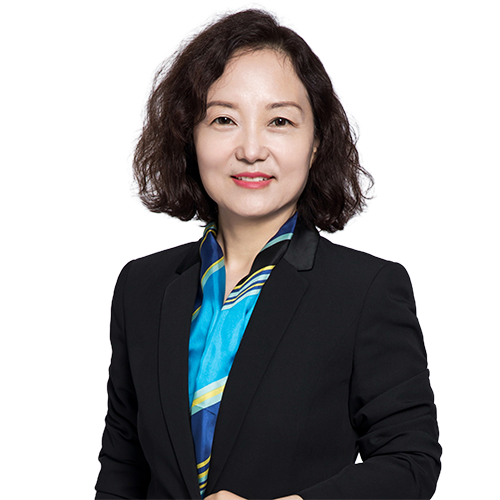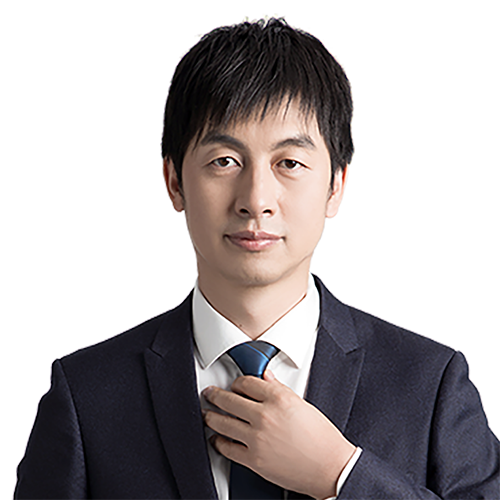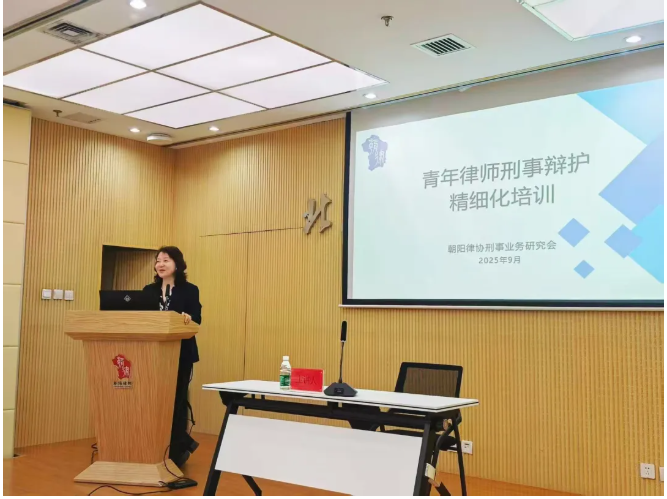
In order to enhance the professional ability of young lawyers in criminal defense and to consolidate the practical skills of trial, recently, invited by the Criminal Practice Research Association of Beijing Chaoyang District Lawyers' Association, a number of lawyers from King&Capital Law Firm successfully held the “Young Lawyers' Criminal Defense Refinement Training” in Chaoyang Law Association. The training was hosted by Liang Yali, senior partner of King&Capital Law Firm and director of Criminal Defense Research Center, and invited Xu Ying, Zang Desheng and Zhang Qiming, senior partners of King&Capital Law Firm, as the guest speakers, which brought a professional feast focusing on the actual combat and full of dry goods for the young lawyers.
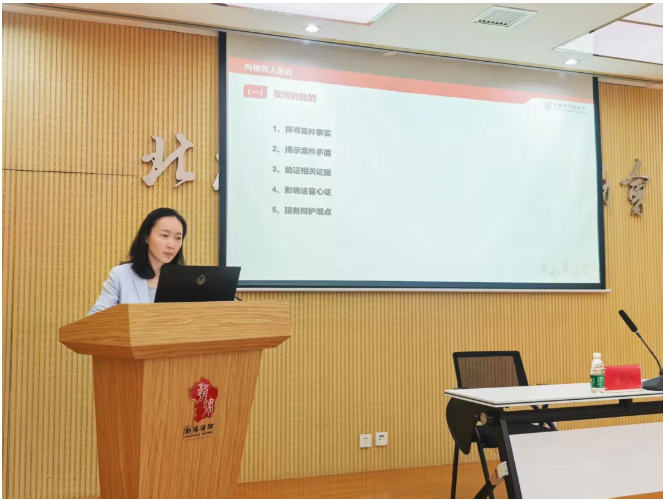
During the training, Ms. Xu Ying shared her views on “Questioning Skills and Strategies in Court”. Combined with a series of typical cases, she explained the core value of court questioning in exploring the facts of the case, revealing the contradictions, verifying the evidence, and influencing the judge's mind, and systematically sorted out the questioning objectives and response strategies for defendants with different plea status, and proposed the questioning design principles of “clear purpose, focus on the key, clear logic, and closed-loop connection”, supplemented by the design principles of ‘split’ and “closed loop”. It also puts forward the design principles of “clear purpose, focus on the key, clear logic, and closed loop”, supplemented by practical skills such as splitting facts and distinguishing types of questions and answers, which provides young lawyers with operational guidelines for questioning that can be put into practice directly.
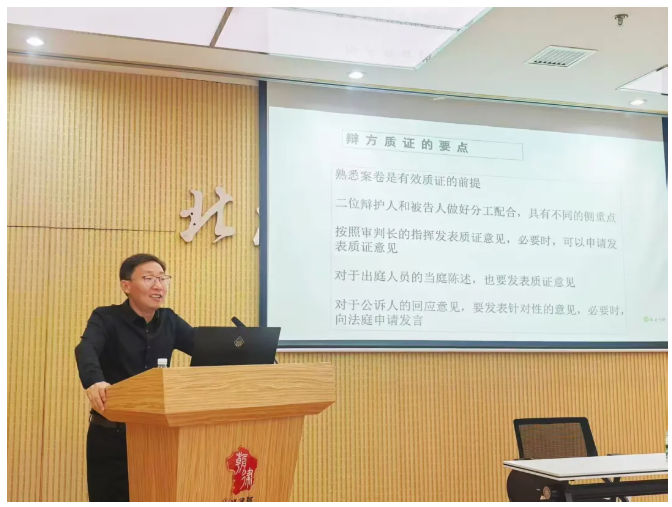
Zang Desheng focuses on “core points and practical methods of questioning”, starting from the object of questioning, clarifying the focus of verbal evidence and physical evidence, emphasizing the need to focus on the evidence of the “three sexes” (legitimacy, authenticity, relevance) to carry out questioning, and ultimately pointing to Evidence ability and proof of judgment. Combined with his own experience in handling cases, he put forward the requirements of “clear conclusions, full reasoning, legal basis, and targeted force”, and shared the practical skills of pre-trial preparation, division of labor, and procedural response to help young lawyers accurately grasp the key links in the cross-examination.
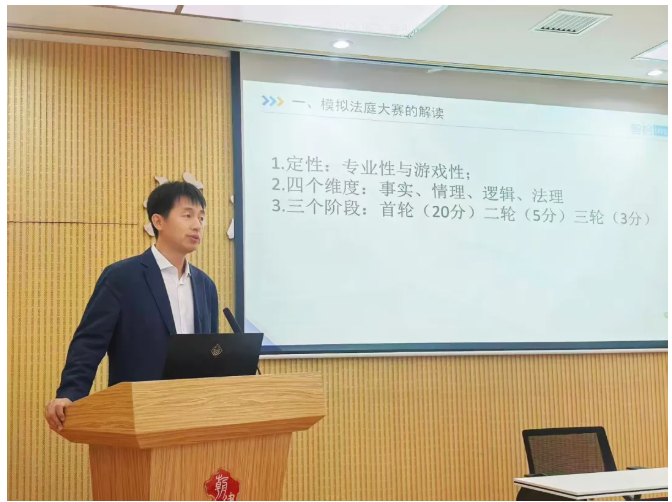
Mr. Zhang Qiming, from the perspective of “court debate dimensions and competition strategy”, analyzed the dual attributes of “professionalism and playfulness” of the moot court, and put forward the four major debate dimensions of fact, reason, logic and jurisprudence. Combining the different positions of the prosecution and the defense, he explained the structural design and expression skills of the debate, gave specific suggestions on the response strategy for multiple rounds of debates, emphasized that the debate needs to be echoed with the questioning and cross-examination sessions to form a closed loop of the logic of the whole case, and at the same time, shared the practical methods to enhance the effectiveness of the debate such as the use of language and preparation for attack and defense.

Combined with their rich practical experience, the three speakers used cases as a guide and skills as an outline to break down the key points and methods of the core aspects of criminal defense. Participating young lawyers said that the training focused on the refined operation of criminal defense, the content of both theoretical depth and practical value, effectively answering the many confusions in the trial practice, and providing a powerful guide to improve the quality of defense in the future.




